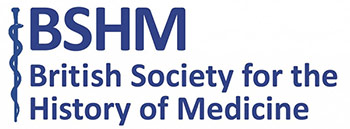
Water from natural springs has been used therapeutically since antiquity. In the Christian pre-Reformation era the healing properties were often ascribed to the power of the saint to who they were dedicated and so the waters became the object of pilgrimage.
In the mid-sixteenth century Paracelsus (1493-1541) proposed the use of specific minerals in medicine. In England there were wells containing salt, sulphur or iron, known colloquially as salt, stinking or tart. An example of the last was discovered in woodland near Tonbridge in 1605 by Dudley, Lord North (1581-1666).
To promote its use he arranged for clearance of the land, the erection of lodgings and medical publicity with the publication of The Queen’s Wells in 1632 by Ludovick Rowzee, a physician from nearby Ashford.
 The advertising was so successful that soon royalty attended. All the Stuart rulers, followed by Queen Mary II and her sister Queen Anne, came for fertility problems mainly associated with the difficulties of producing a male heir. The fashionable attended as it was not too far from London, situated in pleasant countryside and it boasted good facilities for therapy and entertainment.
The advertising was so successful that soon royalty attended. All the Stuart rulers, followed by Queen Mary II and her sister Queen Anne, came for fertility problems mainly associated with the difficulties of producing a male heir. The fashionable attended as it was not too far from London, situated in pleasant countryside and it boasted good facilities for therapy and entertainment.
It was suggested that you should consult your home doctor before travelling as Tunbridge did not accept children, those terminally ill nor those with infectious diseases. On arrival you would be met by Beau Nash (1674-1761) who attended each summer to arrange the entertainments of dancing, gambling and theatre. He would solicit a contribution to their costs.
Next would be a visit to the spa doctor who would recommend your individual regimen. This would include advice concerning bleeding, purging, diet, rest, exercise and moderation in alcohol intake. At Tunbridge one drank the waters rather than bathed in them. Your spa doctor would prescribe your own intake which could be up to eight pints. This would be taken before breakfast, starting with a small dose and working up to the maximum after at least a fortnight and then slowly decreasing again.
Having returned to your lodgings, breakfasted and dressed in one’s finery, you would spend the day at leisure. This could include socialising on the walks near the well, shopping, getting a book from the lending library or attending a long sermon at the local church. Gentlemen might read the daily papers and smoke at the pipe shop. The evening could be spent enjoying Nash’s diversions.
Much of the literature stated that if your ailment was not cured it was either because you had not drunk enough or that you were too mean and your stay was too short to let the waters have their effect.
John Ford



